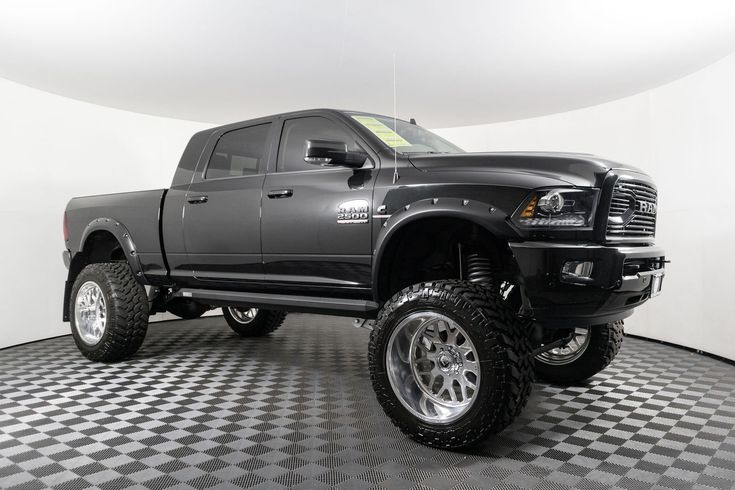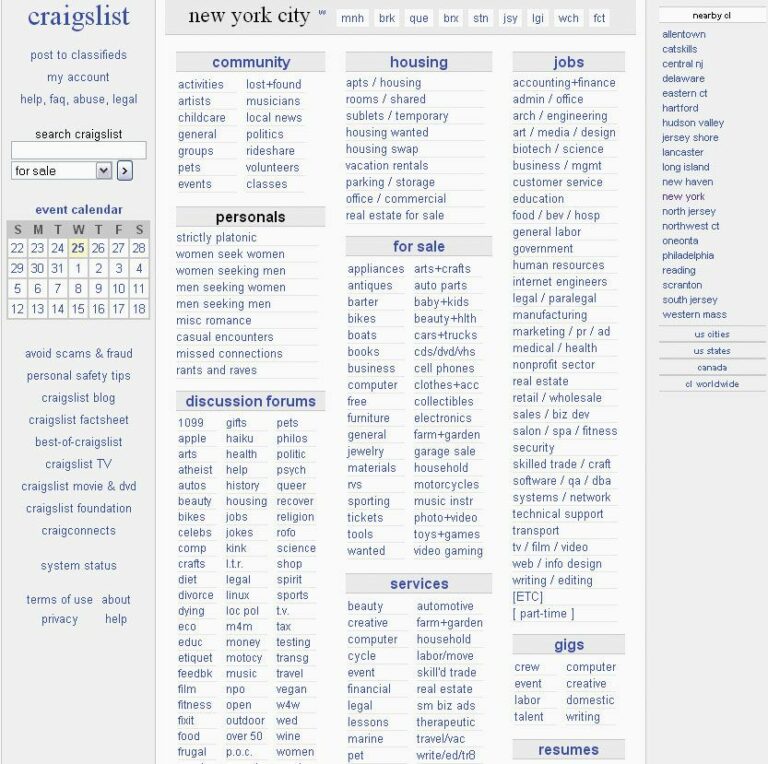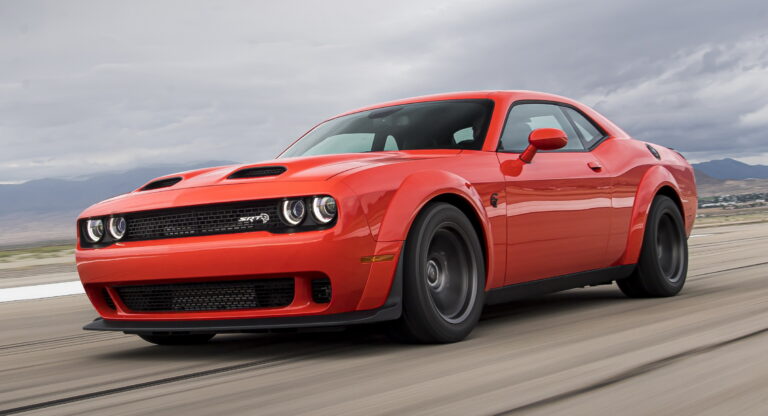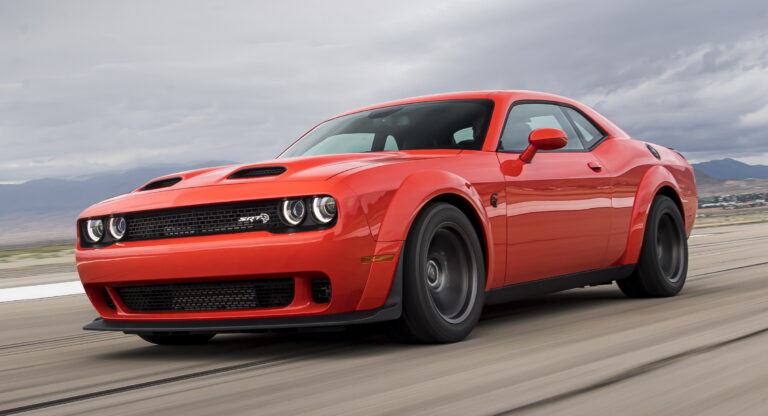Dock Trucks For Sale: Your Comprehensive Guide to Acquiring the Right Yard Spotter
Dock Trucks For Sale: Your Comprehensive Guide to Acquiring the Right Yard Spotter cars.truckstrend.com
Introduction: The Unsung Heroes of Logistics
In the vast and complex world of logistics, where efficiency and precision are paramount, certain specialized vehicles play an indispensable role behind the scenes. Among these workhorses are "dock trucks," also widely known as yard spotters, terminal tractors, or shunt trucks. These purpose-built vehicles are the backbone of any busy distribution center, port, rail yard, or manufacturing facility, expertly maneuvering trailers within confined spaces, connecting them to loading docks, and orchestrating the seamless flow of goods. Unlike their over-the-road counterparts, dock trucks are engineered for short, repetitive tasks, prioritizing maneuverability, visibility, and robust performance in demanding yard environments.
Dock Trucks For Sale: Your Comprehensive Guide to Acquiring the Right Yard Spotter
The decision to acquire a dock truck, whether new or used, is a strategic investment that directly impacts operational efficiency, safety, and overall productivity. This comprehensive guide aims to demystify the process of finding and purchasing the right dock truck, offering insights into their importance, types, crucial considerations, the buying process, and practical advice to ensure you make an informed decision. If you’re looking to optimize your logistics operations and streamline your yard management, understanding the market for dock trucks for sale is your first essential step.
What is a Dock Truck and Why Do You Need One?
A dock truck is a heavy-duty, short-haul truck specifically designed for moving semi-trailers and containers around a freight yard, warehouse, or intermodal facility. Its distinctive features include a short wheelbase, excellent turning radius, a hydraulically lifting fifth wheel (known as a "spotter hitch"), and a rear-facing cab door for quick entry and exit. These design elements make them vastly superior to conventional over-the-road trucks for yard operations.
Key Benefits and Applications:
- Enhanced Efficiency: Dock trucks significantly reduce the time required to move trailers, allowing for quicker loading and unloading cycles. Their rapid hook-up and disconnect capabilities minimize downtime.
- Increased Safety: Designed with superior visibility, low-speed maneuverability, and specialized safety features (like robust bumpers and easy access), they reduce the risk of accidents in crowded yards compared to using standard highway tractors.
- Reduced Wear and Tear: Using dedicated yard trucks protects your expensive over-the-road tractors from the excessive clutch wear, brake strain, and general wear and tear associated with constant low-speed maneuvering and coupling/uncoupling.
- Cost-Effectiveness: While an initial investment, dock trucks lead to long-term savings by extending the life of your highway fleet, improving fuel efficiency for yard tasks, and reducing labor costs through optimized processes.
- Specialized Maneuverability: Their tight turning radius allows them to navigate narrow aisles and congested areas with ease, a feat often impossible for longer, less agile road trucks.

Dock trucks are indispensable in a variety of settings, including large-scale distribution centers, busy shipping ports, intermodal rail yards, manufacturing plants with extensive internal logistics, and third-party logistics (3PL) providers managing multiple client yards.
Key Types and Features of Dock Trucks

When exploring dock trucks for sale, you’ll encounter a range of options tailored to different operational needs. Understanding these types and their features is crucial for making the right choice.
New vs. Used Dock Trucks
- New Dock Trucks: Offer the latest technology, better fuel efficiency (especially electric models), full manufacturer warranties, and often more advanced safety features and operator comforts. The primary drawback is the higher initial purchase price. Ideal for high-volume operations where reliability and cutting-edge features are paramount.
- Used Dock Trucks: A more budget-friendly option, providing significant cost savings. The market for used dock trucks is robust, offering a wide selection. However, they may come with higher accumulated hours, potential wear, and limited or no warranty. Thorough inspection and a detailed service history are critical when considering used models. They are excellent for operations with tighter budgets or lower daily usage.

Power Source: Diesel vs. Electric
- Diesel Dock Trucks: Historically the most common, diesel models offer robust power, proven reliability, and easy refueling. They are well-suited for heavy-duty applications and environments where charging infrastructure is not feasible. However, they produce emissions and can be noisier.
- Electric Dock Trucks: Gaining significant traction due to environmental benefits (zero emissions), lower operating costs (electricity vs. diesel), reduced noise, and often less maintenance (fewer moving parts). The initial purchase price is typically higher, and they require dedicated charging infrastructure. Ideal for operations prioritizing sustainability, quiet environments, and long-term operational savings.
Other Important Features
- Hydraulic Fifth Wheel: The defining feature, allowing the operator to lift and lower trailers without leaving the cab. Look for robust designs and reliable hydraulics.
- Cab Design: Ergonomics, visibility (360-degree views are crucial), air conditioning/heating, comfortable seating, and ease of entry/exit (often with a rear door) are vital for operator comfort and safety during long shifts.
- Transmission: While some older models might have manual transmissions, modern dock trucks predominantly feature heavy-duty automatic transmissions for ease of operation and reduced driver fatigue.
- Axle Configurations: Depending on the weight and type of trailers, different axle configurations (e.g., single or tandem rear axles) may be available.
- Manufacturer Reputation: Leading manufacturers like Kalmar Ottawa, Capacity, Terberg, Autocar, and Tico are known for their reliability, parts availability, and service networks.
Important Considerations When Buying a Dock Truck
Acquiring a dock truck is a significant investment. Careful consideration of several factors will ensure you choose a vehicle that perfectly aligns with your operational needs and budget.
-
Application and Usage Volume:
- How many trailers will it move daily? High-volume operations may warrant a new truck with maximum uptime.
- What are the typical trailer weights? Ensure the truck’s gross combined weight rating (GCWR) is sufficient.
- What kind of terrain will it operate on? Paved lots, gravel, or inclines will influence tire choice and suspension needs.
- How many hours will it run per day? This impacts maintenance schedules and the choice between new/used or diesel/electric.
-
Budget and Total Cost of Ownership (TCO):
- Beyond the purchase price, factor in fuel/electricity costs, routine maintenance, parts replacement, insurance, and potential downtime.
- For electric trucks, consider the cost and installation of charging infrastructure.
- Explore financing options, leasing, or rental programs if outright purchase is not feasible.
-
Maintenance and Parts Availability:
- Research the availability of parts for your chosen make and model. Are they proprietary or easily sourced?
- Assess the dealer network and their service capabilities in your region. A strong service partnership is invaluable for minimizing downtime.
- For used trucks, obtain comprehensive service records to understand past maintenance and potential issues.
-
Operator Comfort and Safety:
- Happy operators are productive operators. Evaluate cab ergonomics, seat comfort, climate control, and noise levels.
- Safety features such as anti-lock brakes (ABS), backup cameras, visibility aids, and robust lighting are critical in busy yards.
- Ease of entry and exit, especially for drivers making frequent stops, is a key consideration.
-
Environmental and Regulatory Compliance:
- Consider local emissions regulations, especially for diesel trucks. Newer diesel engines often have advanced emissions control systems.
- Electric trucks offer a compelling solution for reducing your carbon footprint and meeting stricter environmental mandates.
-
Resale Value:
- Especially for new purchases, consider the brand’s reputation and historical resale value. Well-maintained trucks from reputable manufacturers tend to hold their value better.
The Buying Process: Tips for Finding the Right Dock Truck
Navigating the market for dock trucks for sale can be straightforward if you follow a structured approach.
- Define Your Needs Clearly: Before you start looking, create a detailed list of your operational requirements, including expected daily usage, trailer types and weights, yard conditions, and budget constraints.
- Research the Market:
- New Trucks: Contact authorized dealerships of leading manufacturers (Kalmar Ottawa, Capacity, Terberg, Autocar, Tico). They can provide specifications, pricing, and warranty information.
- Used Trucks: Explore reputable used equipment dealers specializing in heavy trucks, online marketplaces (e.g., TruckPaper, Commercial Truck Trader, Ritchie Bros. Auctioneers), and direct sales from companies upgrading their fleets.
- Thorough Inspection (Especially for Used):
- Mechanical Check: Have a qualified mechanic perform a pre-purchase inspection. Check the engine, transmission, hydraulic system (fifth wheel lift), brakes, steering, and suspension.
- Fluid Checks: Inspect oil, coolant, and hydraulic fluid levels and condition for signs of contamination.
- Tires: Evaluate tire tread depth and condition. Tire replacement can be a significant expense.
- Frame and Body: Look for signs of rust, cracks, or collision damage.
- Cab Condition: Test all gauges, lights, HVAC, and assess the overall condition of the interior.
- Service Records: Request complete maintenance and repair records to understand the truck’s history.
- Test Drive: Always test drive the truck in conditions similar to your operational environment. Pay attention to steering, braking, acceleration, visibility, and the operation of the fifth wheel.
- Negotiate: Be prepared to negotiate on price, especially for used trucks. Knowledge of market value and any identified deficiencies (from your inspection) will strengthen your position.
- Financing and Insurance: Secure appropriate financing and ensure you have adequate insurance coverage before taking delivery.
- Post-Purchase: Arrange for operator training, establish a preventative maintenance schedule, and ensure you have access to parts and service.
Challenges and Solutions in Dock Truck Acquisition
Even with careful planning, challenges can arise during the acquisition process.
- Challenge: High Initial Cost (New Trucks).
- Solution: Explore the robust used truck market for well-maintained options, consider leasing programs that offer flexibility and lower upfront costs, or investigate financing options from dealers or specialized lenders.
- Challenge: Unforeseen Maintenance Issues (Used Trucks).
- Solution: Conduct a comprehensive pre-purchase inspection by a certified mechanic, demand complete service records, and factor in a contingency budget for initial repairs or upgrades. Opt for trucks from reputable dealers who offer warranties on used equipment.
- Challenge: Finding the Right Specification.
- Solution: Clearly define your operational needs before starting your search. Work with experienced dealers who can help match your requirements to available models. Be open to slightly different configurations if they still meet core needs.
- Challenge: Transitioning to Electric Dock Trucks (Infrastructure).
- Solution: Plan for the necessary electrical infrastructure upgrades (chargers, power supply) well in advance. Consult with electrical contractors and the truck manufacturer for guidance. Consider a phased transition if adopting a fleet of electric vehicles.
- Challenge: Limited Availability of Specific Models.
- Solution: Widen your search radius, utilize online marketplaces that aggregate listings from various sellers, or work with equipment brokers who have extensive networks and can source specific models.
Dock Trucks For Sale: Estimated Price Guide
Please note that prices for dock trucks can vary significantly based on brand, model, year, condition, hours of operation, features, and market demand. The table below provides a general estimated price range for different categories. These are approximate figures and should be used as a guide only. Always obtain specific quotes from sellers.
| Category | Condition/Age | Manufacturer Examples | Estimated Price Range (USD) | Key Features/Notes |
|---|---|---|---|---|
| Used Dock Truck | Older (10+ years) | Ottawa, Capacity, Tico | $20,000 – $45,000 | High hours, visible wear, may require immediate maintenance, basic features. |
| Mid-Age (5-10 yrs) | Ottawa, Capacity, Tico | $45,000 – $80,000 | Moderate hours, good working condition, routine maintenance needed, standard features. | |
| Refurbished Dock Truck | Varies | Ottawa, Capacity, Tico | $80,000 – $120,000 | Thoroughly inspected, key components replaced/repaired, often comes with short warranty. |
| New Diesel Dock Truck | Brand New | Ottawa, Capacity, Tico, Autocar | $120,000 – $180,000 | Latest emissions standards, full warranty, customizable features, standard cab. |
| New Electric Dock Truck | Brand New | Kalmar, Capacity, Terberg | $180,000 – $250,000+ | Zero emissions, lower operating costs, quiet operation, higher upfront investment. |
| Specialized/Heavy-Duty | New/Refurbished | Custom configurations | $150,000 – $300,000+ | Enhanced towing capacity, specific axle configurations, advanced safety/tech packages. |
Note: Prices do not include taxes, shipping, or potential financing costs.
Frequently Asked Questions (FAQ) about Dock Trucks For Sale
Q1: What is the difference between a "yard spotter," "terminal tractor," and "shunt truck"?
A1: These terms are synonymous. They all refer to the same type of specialized truck designed for moving trailers within a yard or terminal environment. Different regions or industries may prefer one term over another.
Q2: How long do dock trucks typically last?
A2: With proper preventative maintenance and regular servicing, a dock truck can last anywhere from 10 to 15 years, or even longer, accumulating 20,000 to 40,000+ operating hours. Longevity heavily depends on the intensity of use and adherence to maintenance schedules.
Q3: Are electric dock trucks a good investment?
A3: Yes, increasingly so. While they have a higher initial purchase price and require charging infrastructure, electric dock trucks offer significant long-term savings through lower fuel costs (electricity vs. diesel), reduced maintenance needs (fewer moving parts), and often qualify for environmental incentives. They also provide a quieter, emission-free operation, improving the work environment.
Q4: Can I use an over-the-road (highway) truck for yard spotting?
A4: While technically possible, it is strongly discouraged. Highway trucks are not designed for the constant coupling/uncoupling, tight turns, and low-speed maneuvering required in a yard. This practice leads to excessive wear on the clutch, transmission, and brakes, significantly reducing the life of the highway truck and increasing maintenance costs. It also poses safety risks due to limited visibility and maneuverability in congested yards.
Q5: What kind of maintenance do dock trucks require?
A5: Dock trucks require regular preventative maintenance similar to other heavy vehicles, but with a focus on their specific duty cycle. This includes frequent oil changes, checks of the hydraulic fifth wheel system, brake inspections (due to constant stopping), tire condition, and lubrication of moving parts. Filters (air, fuel, oil, hydraulic) also need regular replacement.
Q6: What should I look for when inspecting a used dock truck?
A6: Key inspection points include the engine (look for leaks, strange noises), transmission (smooth shifting), hydraulic system (fifth wheel lift mechanism, hoses, cylinders), brakes (pads, drums/rotors, air system), tires (tread depth, even wear), frame (cracks, rust), and the cab interior (all gauges, lights, HVAC, seat condition). Always request service records.
Conclusion: Driving Efficiency Forward
Investing in the right dock truck for sale is a critical decision that directly impacts the efficiency, safety, and profitability of your logistics operations. From understanding the core benefits of these specialized vehicles to navigating the nuances of new versus used models, and from meticulous inspection processes to strategic financial planning, every step plays a vital role in securing the optimal asset for your yard.
By carefully assessing your operational needs, researching reputable manufacturers and sellers, conducting thorough inspections, and considering the total cost of ownership, you can make an informed choice that will serve your business for years to come. Whether you opt for the robust reliability of a diesel workhorse or the sustainable innovation of an electric model, a well-chosen dock truck is more than just a piece of equipment—it’s a strategic investment in streamlined workflows, enhanced safety, and a more productive future for your entire supply chain. Choose wisely, and watch your yard operations reach new levels of efficiency.





